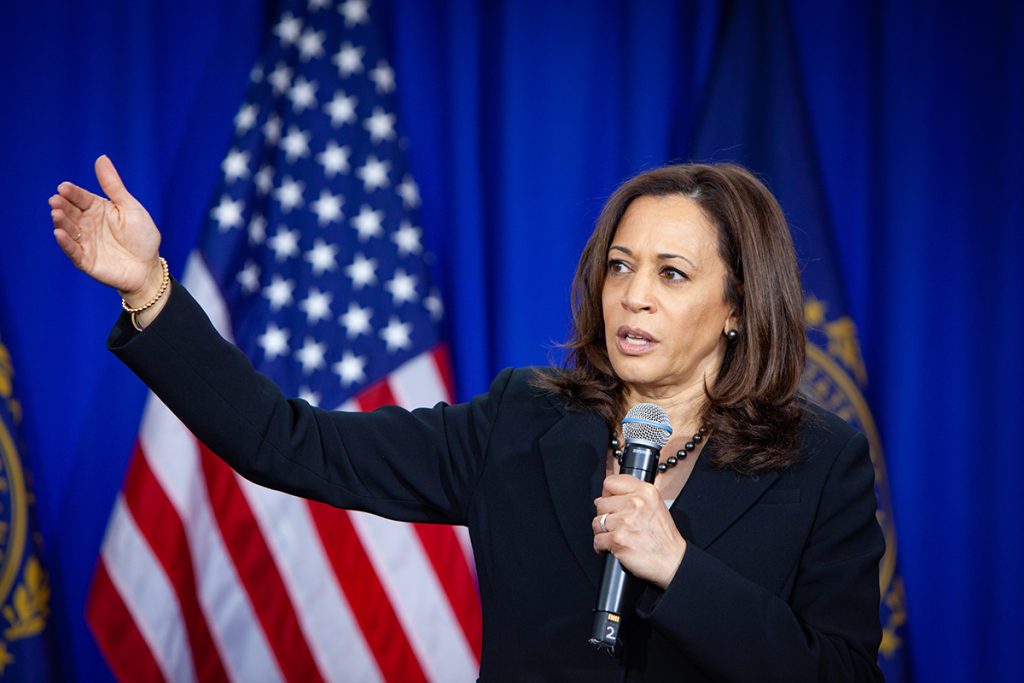In a surprising twist, Vice President Kamala Harris is rapidly advancing towards securing the Democratic nomination for the 2024 presidential race. This follows President Joe Biden’s unforeseen decision to withdraw from the race, driven by internal party concerns regarding his capability to triumph over Republican contender Donald Trump. Biden’s exit has dramatically altered the political terrain for the imminent election.
Biden’s announcement on Sunday has profoundly impacted the strategic plans of both major parties. The Democratic Party, eager to end the weeks of internal turmoil surrounding Biden’s candidacy, swiftly united behind Harris. Within hours of Biden’s announcement, prominent Democratic officials, party leaders, and political organizations expressed their support for Harris.
With Biden stepping aside, his delegates are now free to choose any candidate. Harris, backed by Biden, stands as the sole declared candidate and is actively working to secure endorsements from the majority of delegates. On Monday, she received significant endorsements from Maryland Governor Wes Moore, Michigan Governor Gretchen Whitmer, Illinois Governor J.B. Pritzker, and Kentucky Governor Andy Beshear. These endorsements significantly narrow the field of potential rivals for Harris.
Securing the nomination is just the initial hurdle Harris faces after Biden’s decision, which she learned of during a Sunday morning call with the president. Should she succeed, she will need to select a running mate and reconfigure Biden’s extensive political operation to support her campaign, a challenging task with just over 100 days left until Election Day.
By Sunday afternoon, Biden’s campaign had been rebranded to “Harris for President.” This shift signifies Harris inheriting Biden’s political infrastructure, which includes more than 1,000 staffers and a considerable war chest of nearly $96 million as of the end of June. By Monday morning, Harris’s campaign finances had grown further, with $49.6 million raised within the first 15 hours following Biden’s endorsement.
Harris spent much of Sunday with family and staff, making over 100 calls to Democratic officials to secure their support. This initiative aims to move the party past the contentious period triggered by Biden’s June 27 debate with Trump. Harris, while appreciative of Biden’s endorsement, stressed her commitment to earning the nomination on her own merits.
The Democratic Party is rallying behind Harris, as indicated by endorsements from key caucus leaders and political organizations. These include the AAPI Victory Fund, The Collective PAC, the Latino Victory Fund, and the chairs of the Congressional Progressive Caucus, the Congressional Hispanic Caucus, and the entire Congressional Black Caucus. Harris’s election would be historic, making her the first woman and the first person of South Asian descent to become president.
Potential running mates like Pennsylvania Governor Josh Shapiro, North Carolina Governor Roy Cooper, and Arizona Senator Mark Kelly have also endorsed her candidacy. Harris secured their support during calls on Sunday.
Former President Barack Obama has yet to endorse Harris, preferring to back the eventual party nominee to avoid any appearance of a predetermined outcome. Meanwhile, West Virginia Senator Joe Manchin, who had considered challenging Harris by re-registering as a Democrat, confirmed he will not run.
Harris made her first public appearance as a presidential candidate on Monday morning at the White House, where she spoke at an event honoring National Collegiate Athletic Association championship teams. This event marks her balancing act between vice-presidential duties and her new role as a candidate. Later, she traveled to Wilmington to meet with her newly assembled campaign staff.
In her remarks, Harris lauded Biden’s decision to step aside as a patriotic and selfless act. She pledged to unite the Democratic Party to defeat Trump and his Project 2025 agenda. Biden is expected to elaborate on his decision in a national address later this week, reaffirming his belief that stepping down serves the party and the country’s best interests.
The Democratic National Convention, set for August 19-22 in Chicago, will adapt its nomination process in light of Biden’s withdrawal. Harris has expressed her preference for a nomination process that follows regular procedures rather than a virtual roll call.
The Democratic National Committee has committed to a transparent and orderly process to select a candidate capable of defeating Trump in November. Harris’s efforts to secure the nomination signify the beginning of a demanding yet potentially historic campaign.


